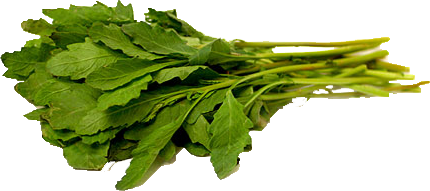|
Epazote has
largely been viewed as medicinal herb rather than a culinary plant. In general,
its leaves used in the cooking to counter indigestion and flatulence effects in
the beans or any fiber and protein rich food. Nonetheless, the herb has many
intrinsic plant nutrients which when used optimally would benefit to overall
health and wellness.
The herb is very
low in calories. 100 g leaves just contain 32 calories. Its plain leaves
provide good amount of fibre, 3.8 g per 100g.
Its leaves
composed of many monoterpene compounds such as ascaridole (60-80%),
isoascaridole, p-cymene, limonene, and terpinene. Ascaridole is toxic to
several intestinal worms like roundworm, hookworms, pinworm etc. Native Mayans
drank its infusion on regular basis to keep off from worm infestation.
The herb parts,
especially young leaves are excellent source of folic acid, provide 215 µg or
54% of daily recommended values. Folic acid takes part in the DNA synthesis and
cell division. Expectant mothers, therefore, advised to add more greens in
their diet to help prevent neural tube defects in the new-borns.
Epazote has small
amounts of vitamin-A and some flavonoid phenolic anti-oxidants such as
beta-carotenes. Together, they act as protective scavengers against
oxygen-derived free radicals and reactive oxygen species (ROS) that play a role
in aging and in various disease processes.
The herb has good
amount of minerals like calcium (27% of RDA), manganese, potassium, iron,
copper, zinc, and selenium. Manganese is used by the body as a co-factor for
the antioxidant enzyme, superoxide dismutase.
It has small but
adequate levels of other B-complex vitamins, particularly pyridoxine and
riboflavin. These vitamins function as co-factors in the enzymatic metabolism
inside the body.
Gastrointestinal
Effects: Like most other leafy, green vegetables,
epazote has a significant level of fibre, which helps to improve the digestive
process and stimulates the smooth movement of the bowels. By improving the
efficiency of the gastrointestinal system, epazote can reduce constipation,
cramping, bloating, and even more serious conditions. Traditionally, however,
epazote was most commonly used to eliminate flatulence and eliminate
indigestion, both of which are always a good thing!
Weight Loss Aid: There are only 32 calories in 100 grams of epazote, yet this
leafy green plant is packed with nutrients and organic compounds that your body
needs. Therefore, if you are trying to lose weight, remain healthy, and feel
full, this fibre- and nutrient-heavy plant is a very wise choice!
Parasitic Effects: One of the other popular traditional uses of epazote was to
treat worms of different types. Hookworms and roundworms, as well as other
parasitic worms in the body, can be neutralized by the active ingredients in
epazote, which makes it an ideal dietary choice for people where water
filtration and basic sanitary conditions may not be available.
Metabolic Activity: The B-complex family of vitamins is an extremely important
element in human health, and while each member does have a slightly different
role in human health, they are all generally associated with the strength and
efficiency of the metabolism. Epazote delivers significant levels of 6
different B vitamins, particularly folic acid. A single serving of epazote
contains more than 50% of the daily recommended amount of folic acid, which is
important for proper development and growth.
Immune System
Booster: The moderate levels of vitamin A found in epazote, along with
various other carotenes and antioxidant compounds, make this herb very
important for the immune system. The antioxidant activity of epazote protects
the skin from free radical damage, and can also neutralize free radicals that
cause various types of cancer and other chronic diseases.
Bone Health: The diverse range of minerals found in epazote mean that it can
be very helpful in protecting your bones as you age. Significant levels of
calcium, phosphorous, zinc, copper, and manganese contribute to bone mineral
density and stave off osteoporosis, meaning that your bones will keep you
strong and healthy well into your later years.
Blood Pressure and
Heart Health: Potassium is one of the most overlooked,
yet essential, minerals in our body. The moderate levels of potassium found in
epazote can act as vasodilators, relaxing the blood vessels and reducing the
strain on our cardiovascular system, thereby lowering the chances of developing
atherosclerosis, consequently protecting us from heart attacks and strokes!
A Final Word of Warning: The high levels of certain organic compounds in epazote,
including folic acid, as well as the potency of the essential oil that can be
extracted, mean that epazote can be dangerous if consumed in large quantities.
Gastroenteritis and other gastrointestinal issues have been reported by people
who have consumed unusually large quantities of the herb or the essential oil.
As always, consult a medical professional before adding a new element to your
regular diet.
|

